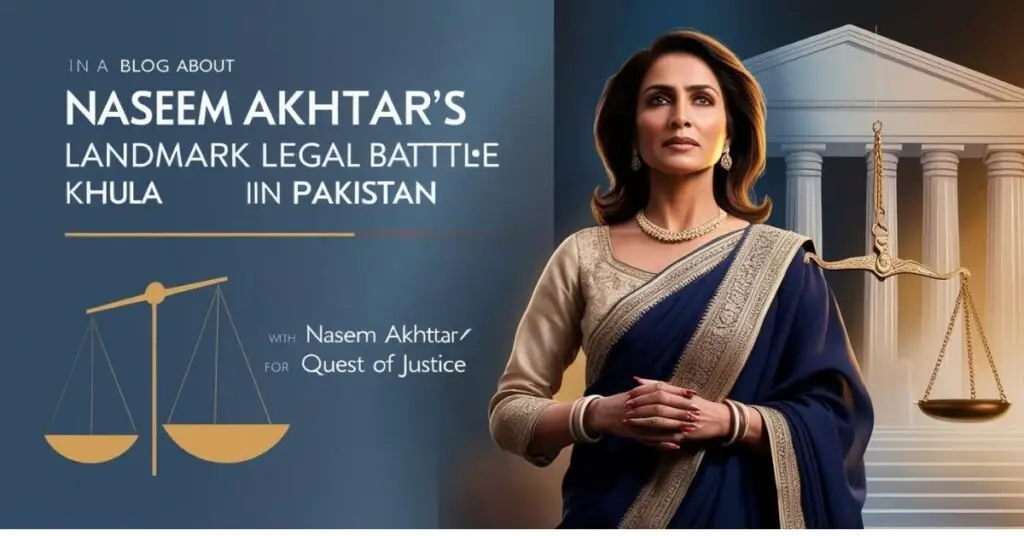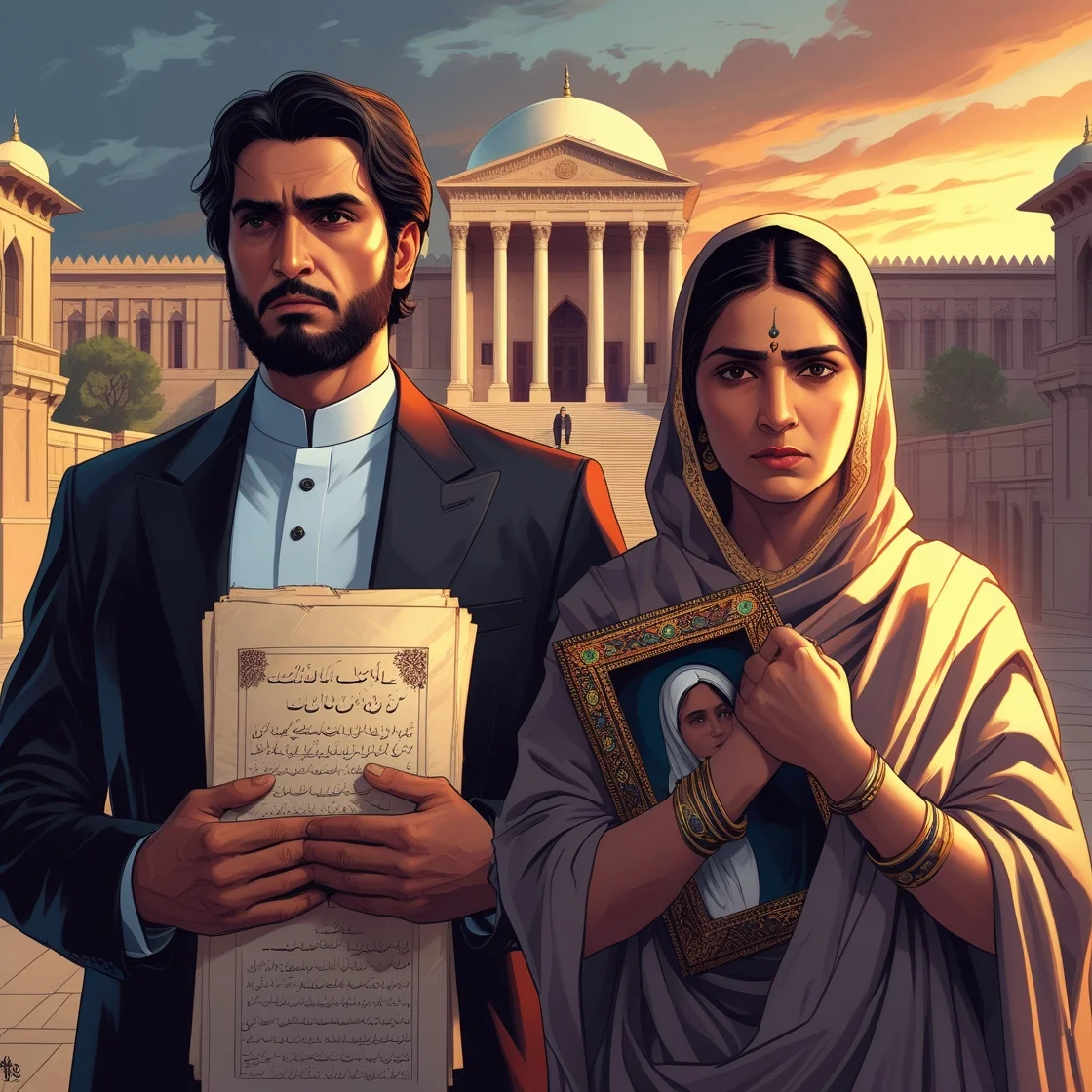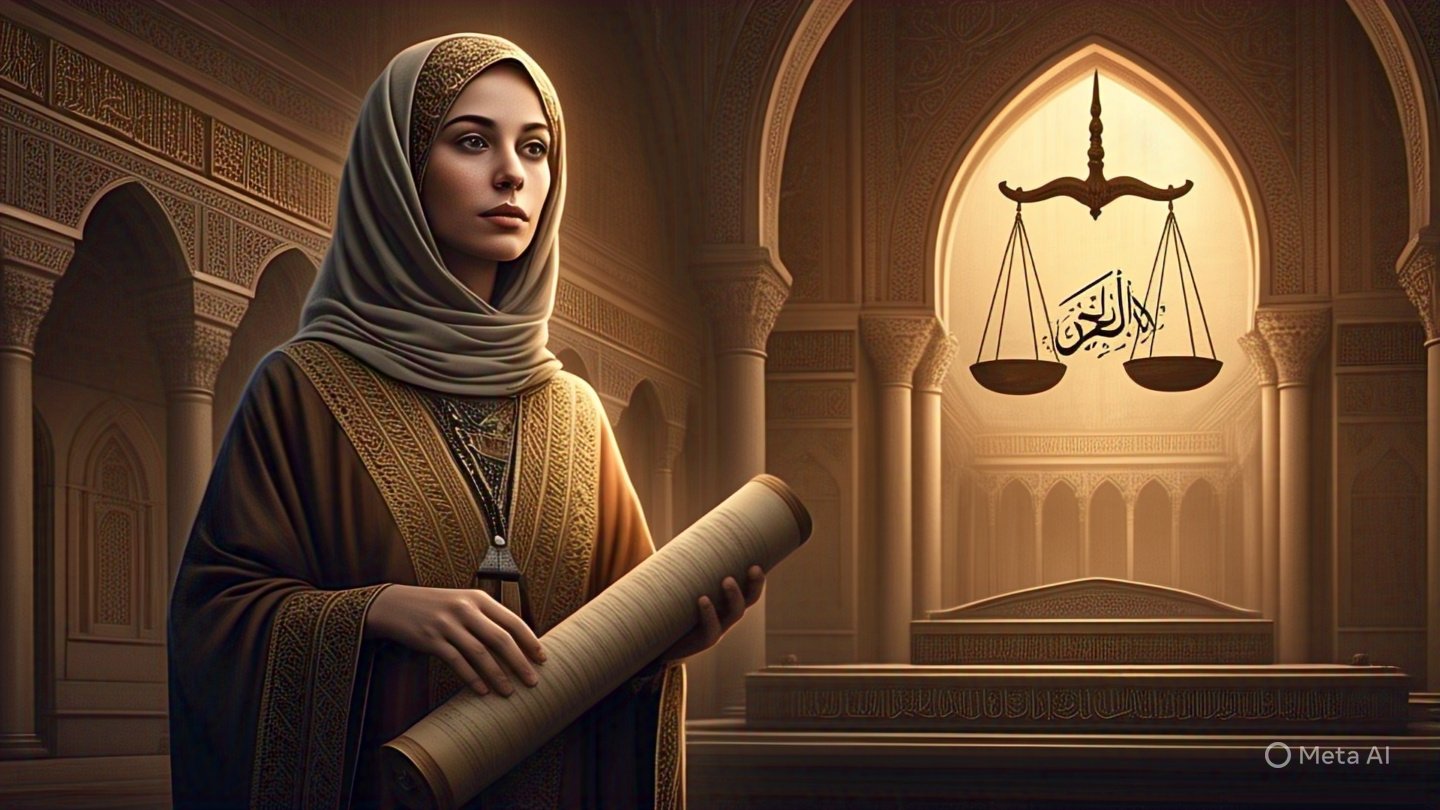
Khula and Justice: A Woman’s Legal Battle for Divorce in Pakistan – Supreme Court’s Landmark Decision
Khula and the Quest for Justice: A Woman’s Legal Struggle and the Supreme Court’s Historic Decision
Introduction
This is the story of Naseem Akhtar, a woman who knocked on the doors of the court to fight for her rights and continued her struggle within the judicial system to secure her right to Khula (divorce initiated by the wife). Her story is not just her own, but it represents all women who endure hardships in marital life and seek justice from the courts to claim their rights. In this blog, we will narrate the facts of the case, legal points, and the arguments of both parties in a storytelling and legal manner so that every citizen can understand the depth and significance of this decision.
خلع اور انصاف کی جستجو: ایک عورت کی قانونی جدوجہد اور سپریم کورٹ کا تاریخی فیصلہ
تعارف
یہ کہانی ہے نسیم اختر کی، ایک ایسی خاتون جنہوں نے اپنے حقوق کے لیے عدالت کا دروازہ کھٹکھٹایا اور خلع کے حق کے حصول کے لیے عدالتی نظام میں اپنی جدوجہد جاری رکھی۔ ان کی کہانی صرف ان کی ہی نہیں، بلکہ ان سب خواتین کی ہے جو ازدواجی زندگی میں مصیبتیں سہتے ہوئے اپنے حقوق کے لیے عدالت سے انصاف حاصل کرنے کی خواہش رکھتی ہیں۔ اس بلاگ میں ہم اس کیس کے حقائق، قانونی نکات، اور دونوں فریقین کے دلائل کو ایک کہانی اور قانونی انداز میں بیان کریں گے تاکہ ہر شہری کو اس فیصلے کی گہرائی اور اہمیت سمجھ آئے۔
| عدالتی فیصلہ پر اردو بلاگ | |||||
| عدالتی فیصلے کا حوالہ نمبر | 2005PLD293 | Dissolution Of Marriage, Khula خلع، تنسیخ نکاح | |||
| کس عدالت نے کیس سنا | سپریم کورٹ آف پاکستان | ||||
| جن جسٹس صاحبان نے کیس سنا | جاوید اقبال اور محمد نواز عباسی | ||||
| جوابی درخواست گزاران | درخواست گزاران | ||||
| محمد رفیق وغیرہ – مدعا علیہان | بنام | مس نسیم اختر – درخواست گزار | |||
| فیصلہ لکھنے والا جسٹس | جاوید اقبال | ||||

Background of the Case
Naseem Akhtar married Muhammad Rafiq in 1972. After several years, their relationship became strained, and Naseem Akhtar filed a case in court seeking the dissolution of the marriage on the grounds of cruelty, non-payment of maintenance, and Khula. In response, the husband filed a claim for the restitution of conjugal rights, and both parties presented their arguments in court.
مقدمے کا پس منظر
نسیم اختر کی شادی 1972 میں محمد رفیق سے ہوئی تھی۔ کئی سالوں کے بعد، ان کے درمیان تعلقات کشیدہ ہو گئے اور نسیم اختر نے ظلم، نان و نفقہ کی عدم ادائیگی اور خلع کی بنیاد پر نکاح کے اختتام کے لیے عدالت میں مقدمہ دائر کیا۔ اس مقدمے میں، شوہر نے جواب میں ازدواجی حقوق کی بحالی کا دعویٰ دائر کیا، اور دونوں فریقین عدالت میں اپنے موقف کے ساتھ پیش ہوئے۔
Arguments of the Parties’ Lawyers
Arguments of the Petitioner’s Lawyer (Naseem Akhtar)
Naseem Akhtar’s lawyer argued in court that his client had not been provided any maintenance for three years and had also been subjected to cruelty. He stated that the husband had only filed for the restitution of conjugal rights in reaction to the case and that his client no longer wished to live with her husband, even if it meant facing punishment. This stance reflected the petitioner’s intense aversion and hatred towards her husband.
فریقین کے وکلاء کے دلائل
درخواست گزار کے وکیل (نسیم اختر) کے دلائل
نسیم اختر کے وکیل نے عدالت میں موقف اختیار کیا کہ ان کی مؤکلہ کو تین سال سے کسی قسم کا نفقہ فراہم نہیں کیا گیا اور ان پر ظلم بھی ڈھایا گیا۔ انہوں نے کہا کہ شوہر نے صرف مقدمے کے ردعمل میں ازدواجی حقوق کی بحالی کا دعویٰ دائر کیا ہے اور یہ کہ ان کی مؤکلہ اب شوہر کے ساتھ رہنا نہیں چاہتیں، حتیٰ کہ اگر انہیں سزا بھی ملے تب بھی وہ شوہر کے ساتھ زندگی گزارنے پر آمادہ نہیں۔ ان کا یہ موقف مؤکلہ کے شدید بیزاری اور نفرت کو ظاہر کرتا ہے۔
Arguments of the Respondent’s Lawyer (Muhammad Rafiq)
Muhammad Rafiq’s lawyer argued that the only way to preserve the marriage was for Naseem Akhtar to live with her husband and children. He contended that divorce could destroy the entire family, as they had five adult children, one of whom was a married daughter. He suggested that instead of Khula, the marriage should be preserved to save the family.
مدعا علیہ کے وکیل (محمد رفیق) کے دلائل
محمد رفیق کے وکیل نے دلائل دیتے ہوئے عدالت کو بتایا کہ نکاح کو برقرار رکھنے کا واحد راستہ یہی ہے کہ نسیم اختر اپنے شوہر اور بچوں کے ساتھ رہیں۔ انہوں نے کہا کہ طلاق کی صورت میں پورا خاندان تباہ ہو سکتا ہے، کیونکہ ان کے پانچ بالغ بچے ہیں جن میں سے ایک بیٹی شادی شدہ ہے۔ انہوں نے استدلال کیا کہ خلع کے بجائے خاندان کو بچانے کے لیے نکاح کو برقرار رکھا جائے۔

Legal Point: A Sharia and Legal Review of the Right to Khula
Under the Family Courts Act of 1964, women are granted the right to Khula for the dissolution of marriage. However, no specific criteria are set for proving hatred and aversion. In this case, the court stated that emotions like love and hatred cannot be measured by logic; what matters is whether the parties can live together in marital harmony.
قانونی نکتہ: خلع کے حق کا شرعی اور قانونی جائزہ
فیملی کورٹ ایکٹ 1964 کے تحت، خواتین کو نکاح کے اختتام کے لیے خلع کا حق دیا گیا ہے۔ تاہم، اس میں کوئی خاص معیار مقرر نہیں کیا گیا کہ نفرت اور بیزاری کو ثابت کرنے کے لیے کیا ثبوت دیے جائیں۔ اس کیس میں عدالت نے کہا کہ محبت اور نفرت کے جذبات کو منطق سے جانچنا ممکن نہیں، بلکہ اہم یہ ہے کہ فریقین مل کر اپنی ازدواجی زندگی گزار سکتے ہیں یا نہیں۔
The Court’s Perspective
The court emphasized that it was no longer possible for Naseem Akhtar to live with her husband. It stated that the purpose of Khula is to provide justice and freedom to women, and if a woman does not wish to live with her husband, the court must respect her decision.
عدالت کا نقطہ نظر
عدالت نے اس بات کو اہمیت دی کہ نسیم اختر کے لیے اپنے شوہر کے ساتھ رہنا اب ممکن نہیں رہا۔ انہوں نے کہا کہ خلع کا مقصد خواتین کو انصاف اور آزادی فراہم کرنا ہے، اور اگر کوئی عورت اپنے شوہر کے ساتھ نہیں رہنا چاہتی تو عدالت کو اس کا احترام کرنا چاہئے۔
The Supreme Court’s Decision and Its Significance
After reviewing all the arguments and evidence, the Supreme Court ruled that Naseem Akhtar had the right to Khula, and her case clearly demonstrated feelings of hatred and aversion. The court also noted that the doubts raised by Muhammad Rafiq and his son about Naseem Akhtar’s character reflected the difficulty she would face living in her husband’s home. Therefore, the court ruled in favor of dissolving the marriage and granted Naseem Akhtar justice.
سپریم کورٹ کا فیصلہ اور اس کی اہمیت
سپریم کورٹ نے تمام دلائل اور شواہد کا جائزہ لینے کے بعد فیصلہ دیا کہ نسیم اختر کو خلع کا حق حاصل ہے اور ان کے کیس میں نفرت اور بیزاری کو واضح طور پر محسوس کیا جا سکتا ہے۔ عدالت نے اس بات پر بھی غور کیا کہ محمد رفیق اور ان کے بیٹے کی جانب سے نسیم اختر کے کردار پر شکوک کا اظہار اس بات کی عکاسی کرتا ہے کہ ان کے لیے شوہر کے گھر میں رہنا مشکل ہو گا۔ اس لیے، عدالت نے نکاح کے اختتام کے حق میں فیصلہ دیا اور نسیم اختر کو انصاف فراہم کیا۔
Message for Citizens: Encouragement to Seek Justice
This case serves as a message to every citizen that if someone is deprived of their rights, they should raise their voice within the legal system. Through this decision, the court strengthened women’s rights and emphasized that the law is equal for all.
شہریوں کے لیے پیغام: انصاف کے حصول کی ترغیب
یہ مقدمہ ہر شہری کے لیے ایک پیغام ہے کہ اگر کوئی اپنے حقوق سے محروم ہے تو اسے قانونی نظام میں اپنی آواز بلند کرنی چاہیے۔ عدالت نے اس فیصلے کے ذریعے خواتین کے حقوق کو تقویت دی اور اس بات پر زور دیا کہ قانون سب کے لیے مساوی ہے۔
Conclusion: Courage in the Pursuit of Justice
Naseem Akhtar’s story teaches us that if you are standing for what is right and striving for justice, you should not hesitate to knock on the doors of the court. The Supreme Court’s decision is an example that justice is attainable, and every citizen should pursue legal avenues to claim their rights.
اختتام: انصاف کی جستجو میں حوصلہ
نسیم اختر کی کہانی ہمیں یہ سبق دیتی ہے کہ اگر آپ حق پر ہیں اور انصاف کے لیے کوشاں ہیں تو عدالت کا دروازہ کھٹکھٹانا چاہئے۔ سپریم کورٹ کا یہ فیصلہ ایک مثال ہے کہ انصاف کا حصول ممکن ہے، اور ہر شہری کو اپنے حق کے لیے قانونی راستہ اپنانا چاہیے۔





